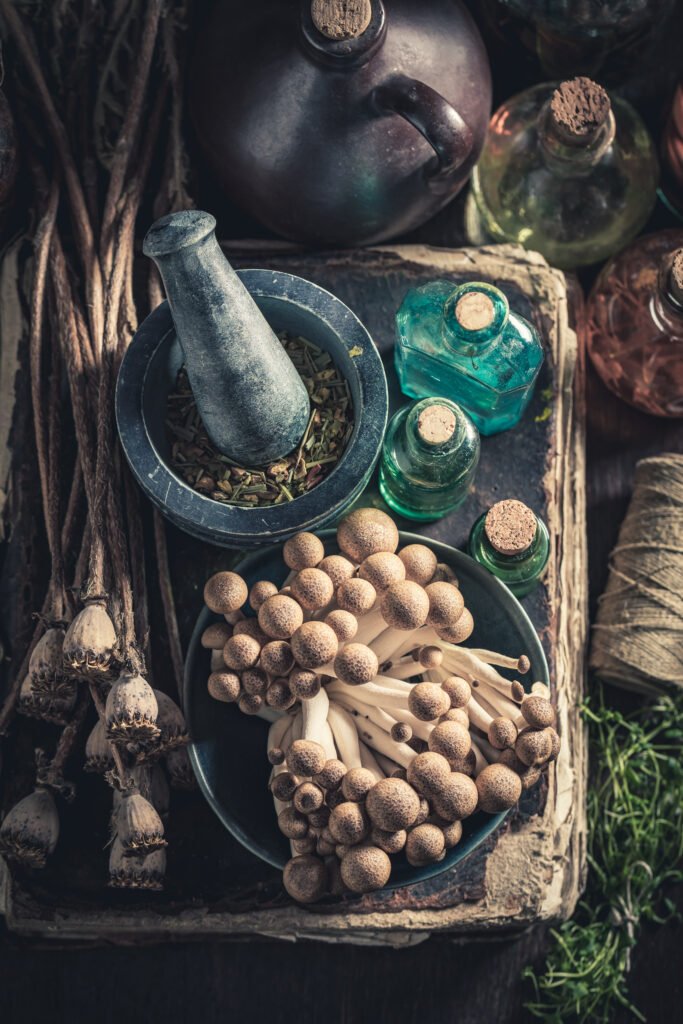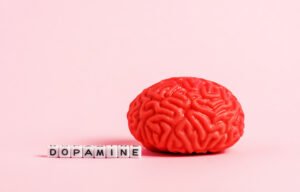Mushrooms have played a significant role in traditional medicine for centuries, offering a variety of health benefits and therapeutic properties. From ancient civilizations to modern-day practices, mushrooms have been recognized for their potential to treat various ailments and enhance overall well-being. Rich in bioactive compounds, medicinal mushrooms have been a staple in traditional Chinese medicine, with a continuously growing interest in the Western world.
With over 14,000 known species of mushrooms, these unique organisms offer a vast array of medicinal properties, such as antimicrobial, anti-inflammatory, immunomodulatory, antidiabetic, cytotoxic, antioxidant, and anticancer qualities. The diversity in species and their applications reflect the complexity and richness of the fungal kingdom, leading researchers to continually explore and unlock the potential of mushrooms as nature’s miniature pharmaceutical factories.
As the world moves toward a more holistic approach to health and wellness, the use of medicinal mushrooms in supplement forms, teas, and traditional remedies continues to gain momentum. These versatile organisms have the potential to address a broad range of health concerns, making them an essential component in the study and practice of natural medicine.
Key Takeaways
- Medicinal mushrooms have a long history of use in traditional medicine due to their variety of health benefits.
- Over 14,000 known species exist, providing a diverse range of therapeutic properties for researchers to explore.
- The growing interest in holistic medicine has led to increased understanding and application of mushrooms in modern health practices.
Understanding Mushrooms
Role in the Food Chain
Mushrooms play a crucial role in the food chain as decomposers. By breaking down organic materials, these fungi nourish plants by releasing essential nutrients back into the environment. In turn, plants provide food to many other organisms, sustaining the lifecycle within ecosystems. Mushrooms are also a significant source of food for humans and animals due to their nutritional value and taste.
Mushroom Composition
Mushrooms are rich in essential nutrients such as proteins, dietary fibers, minerals, and vitamins. Some species also contain bioactive compounds with potential medicinal properties. These active compounds include polysaccharide-protein complexes, alkaloids, β-glucan, and antioxidants, among others, which could provide health benefits such as immunomodulation and antioxidant effects.
Mushrooms and Medicine: Historical Context
The use of mushrooms in traditional medicine can be traced back thousands of years, primarily in Asia and the Mediterranean region. In particular, traditional Chinese medicine has incorporated mushrooms for their potential health benefits, such as regulating the flow of Qi and promoting overall wellbeing. Some notable medicinal mushrooms include Ganoderma lucidum (reishi), Cordyceps sinensis, and Lentinula edodes (shiitake), which have been consumed for their potential therapeutic effects.
Main Types of Medicinal Mushrooms
There are several main types of medicinal mushrooms, each possessing different active compounds and potential health benefits. Some well-known medicinal mushrooms are:
- Ganoderma lucidum (reishi)
- Cordyceps sinensis
- Lentinula edodes (shiitake)
- Grifola frondosa (maitake)
- Coriolus versicolor (turkey tail)
- Hericium erinaceus (lion’s mane)
Health Benefits of Mushrooms
Medicinal mushrooms have gained attention for their potential health benefits, including immune system support, anti-inflammatory, antioxidant, antimicrobial, anticancer, and antidiabetic properties. In addition, mushrooms may have hepatoprotective, antiallergic, and neuroprotective effects. The presence of various bioactive compounds in mushrooms contributes to these potential benefits, and ongoing research aims to understand and validate these effects better.
Mushrooms in Cancer Treatments
Mushrooms have gained interest in cancer treatment due to their potential antitumor properties. Some medicinal mushrooms, such as coriolus and agaricus blazei murill, have shown promise in inhibiting cancer cell growth and metastasis, supporting the immune system to fight cancer cells, and reducing the toxicity of conventional cancer treatments like chemo and radiotherapy. Although further research and clinical trials are needed, mushrooms may provide valuable support in cancer treatment regimens.
Mushroom Consumption
Edible mushrooms can be consumed as part of a balanced diet or in the form of dietary supplements like powders, capsules, or tinctures. Traditional Chinese medicine often incorporates mushrooms into treatments as well, with various preparation methods to enhance their potential health benefits.
Current Research on Medicinal Mushrooms
Current research on medicinal mushrooms ranges from laboratory testing to clinical trials. Studies investigate the potential health benefits, active components, and optimal methods of extracting these components from various mushroom species. As our understanding of medicinal mushroom science grows, researchers are working to translate their findings from laboratory settings to clinical applications.
The Future of Mushrooms in Medicine
As research on medicinal mushrooms advances, we can expect a better understanding of the potential health benefits of these fungi and their bioactive compounds. This knowledge may lead to the development of new drugs and treatments that could help alleviate various health conditions. Furthermore, mycotherapy, the use of medicinal mushrooms in healthcare, may continue to gain acceptance worldwide as scientific evidence accumulates in support of its potential benefits.
Frequently Asked Questions
What are the most common medicinal mushrooms used in traditional medicine?
Some of the most common medicinal mushrooms used in traditional medicine include shiitake (Lentinula edodes), reishi (Ganoderma lucidum), cordyceps (Cordyceps sinensis), and turkey tail (Trametes versicolor). These mushrooms have been utilized for their various health benefits throughout history, particularly in Traditional Chinese Medicine.
How do medicinal mushrooms contribute to overall health and wellness?
Medicinal mushrooms are known to have a wide range of health benefits due to their diverse bioactive compounds. They may contribute to overall health and wellness by providing antioxidant, anti-inflammatory, immune-boosting, and anti-tumor properties. Additionally, some medicinal mushrooms may help to support the functioning of vital organs such as the liver and kidneys.
What research supports the therapeutic benefits of medicinal mushrooms?
Numerous scientific studies have been conducted on the therapeutic properties of medicinal mushrooms. For example, research on Ganoderma lucidum revealed its potent anti-inflammatory properties, while research on Cordyceps sinensis demonstrated its potential in treating kidney and liver diseases. These studies, along with many others, suggest that medicinal mushrooms have potential therapeutic benefits backed by scientific evidence.
How do people consume mushrooms for their medicinal properties?
Medicinal mushrooms can be consumed in various forms, such as supplements, teas, powders, or extracts. They can also be added to food dishes like soups and stews. The method of consumption often depends on personal preference and the specific mushroom being used.
What are the key components in mushrooms that provide health benefits?
The key components in medicinal mushrooms commonly responsible for their health benefits include beta-glucans, polysaccharides, and triterpenoids. These bioactive compounds may contribute to the mushrooms’ antioxidant, immunomodulatory, and anti-inflammatory properties, among others.
How has the use of mushrooms in traditional medicine evolved over time?
The use of medicinal mushrooms in traditional medicine dates back thousands of years. For example, ancient Greek physicians like Hippocrates and Chinese alchemists like Tao Hongjing documented the medicinal properties of various mushrooms. Over time, the understanding and application of medicinal mushrooms have expanded, with modern science validating many of their traditional uses. Today, medicinal mushrooms are utilized in numerous health products and supplements, reflecting the marriage of ancient wisdom and contemporary scientific research.









